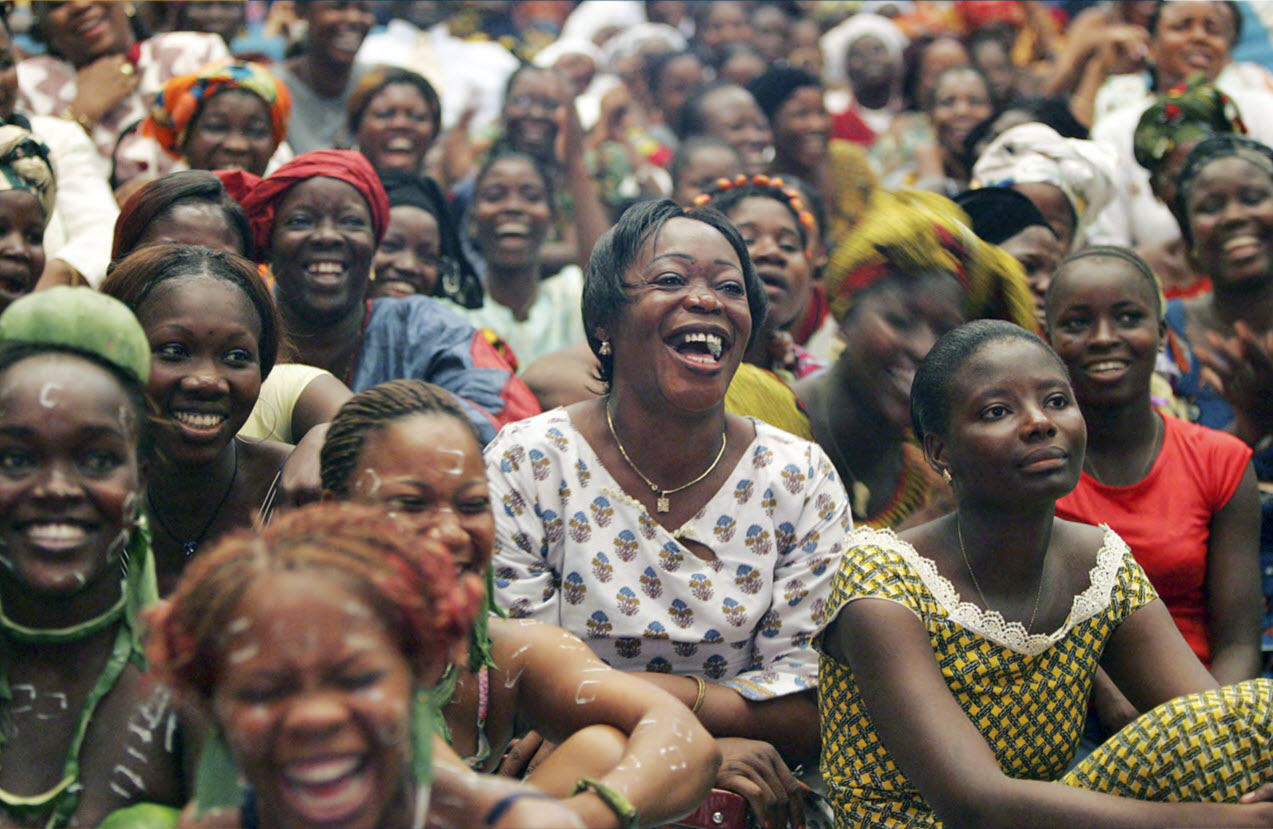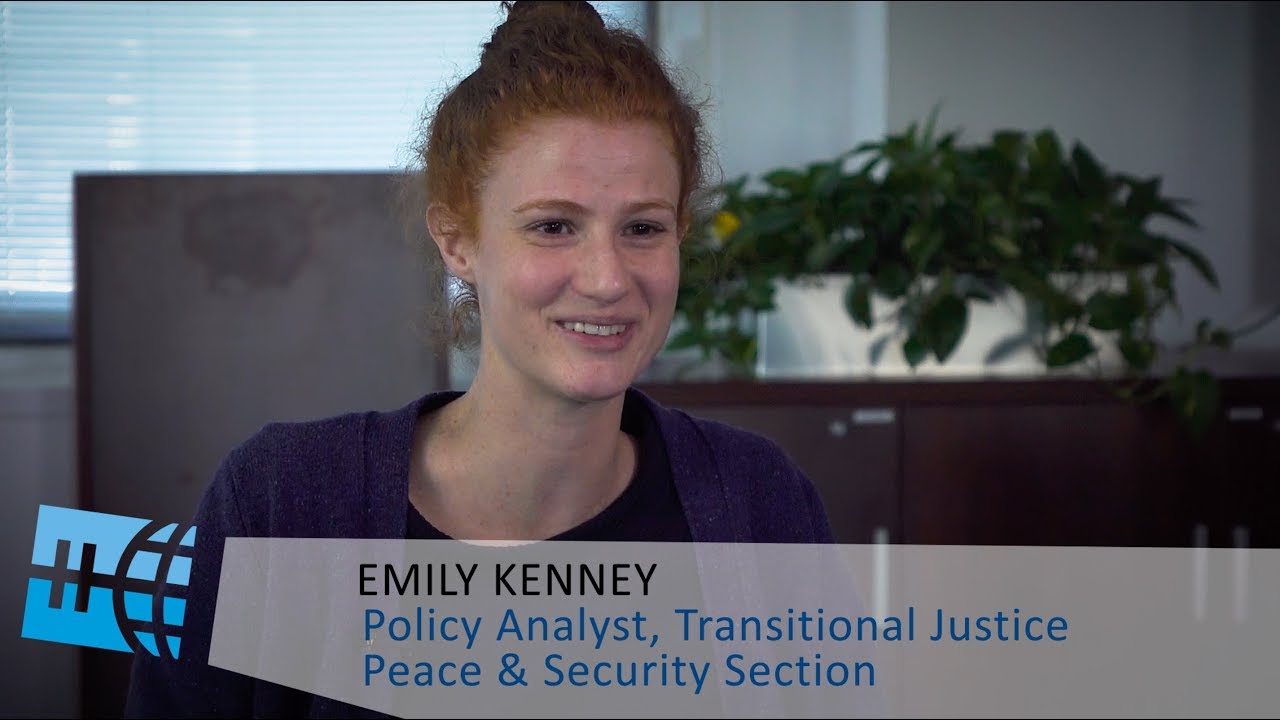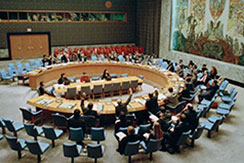Global norms and standards: Peace and security
UN Women’s work under the women, peace, and security (WPS) agenda is guided by a robust set of internationally agreed norms and standards. Ten UN Security Council resolutions form the foundation of the women, peace, and security agenda. These resolutions and related thematic and country-specific decisions by the Security Council and other bodies—such as the UN General Assembly, the Peacebuilding Commission, and the Human Rights Council—promote gender equality and strengthen women’s participation, protection, and rights across the conflict cycle, from conflict prevention to post-conflict reconstruction.
Contents of this page:
- Women, peace and security resolutions
- 2015 peace and security reviews and their follow-up
- Reports of the UN Secretary-General on women and peace and security
- Reports of the UN Secretary-General on conflict-related sexual violence
- Reports of the UN Secretary-General on sexual exploitation and abuse
- Selected UN General Assembly resolutions
- Other key documents
Women, peace and security resolutions
- Resolution 1325 (2000) [S/RES/1325 (2000)] – Affirms the importance of the participation of women and the inclusion of gender perspectives in peace negotiations, humanitarian planning, peacekeeping operations, and post-conflict peacebuilding and governance.
- Resolution 1820 (2008) [S/RES/1820(2008)] – Recognizes sexual violence as a tactic of war and a matter of international peace and security that necessitates a security response.
- Resolution 1888 (2009) [S/RES/1888(2009)] – Strengthens efforts to end sexual violence in conflict by establishing a Special Representative of the Secretary-General and team of experts on rule of law and sexual violence in conflict.
- Resolution 1889 (2009) [S/RES/1889(2009)] – Establishes indicators for the monitoring of resolution 1325 and requests the Secretary-General to submit a report on women’s participation and inclusion in peacebuilding.
- Resolution 1960 (2010) [S/RES/1960(2010)] – Establishes a monitoring and reporting mechanism on sexual violence in conflict.
- Resolution 2106 (2013) [S/RES/2106(2013)] – Stresses accountability for perpetrators of sexual violence in conflict, as well as women’s political and economic empowerment.
- Resolution 2122 (2013) [S/RES/2122(2013)] – Positions gender equality and women’s empowerment as critical to international peace and security, recognizes the differential impact of all violations in conflict on women and girls, and calls for consistent application of WPS across the Security Council’s work.
- Resolution 2242 (2015) [S/RES/2242(2015)] – Establishes the Informal Experts Group (IEG); addresses persistent obstacles in implementing the WPS agenda, including financing and institutional reforms; focuses on greater integration of the agendas on WPS and counter-terrorism and countering violent extremism; and calls for improved Security Council working methods on women, peace, and security.
- Resolution 2467 (2019) [S/RES/2467(2019)] – Positions conflict-related sexual violence as firmly rooted in the broader women, peace and security agenda; stresses justice and accountability efforts; calls for support and protection to women’s civil society organizations; and calls for attention to the issues of children born of rape.
- Resolution 2493 (2019) [S/RES/2493(2019)] – Calls for full implementation of all previous resolutions on women, peace and security; requests the UN to develop context-specific approaches for women's participation in all UN-supported peace processes; and urges Member States to ensure and provide timely support for the full, equal, and meaningful participation of women in all stages of peace processes, including in the mechanisms set up to implement and monitor peace agreements.
Building upon commitment to the women, peace and security agenda, the Security Council has further considered women, peace and security as a cross-cutting issue in its work and adopted thematic and country-specific resolutions relevant to the agenda. Read more about the Security Council’s work.
2015 peace and security reviews and their follow-up
In 2015, the United Nations undertook three comprehensive reviews on peace and security, including on peace operations, peacebuilding, and the implementation of the women, peace, and security agenda. All three reviews underlined the need to increase and enhance the participation of women in peace and security decision-making.
- The report of the High-level Independent Panel on Peace Operations (HIPPO) undertook a review of current UN peace operations and the emerging needs of the future.
- The report of the Advisory Group of Experts (AGE) on the UN Peacebuilding Architecture, which coined the term sustaining peace, gave impetus to UN Security Council resolution 2282 (2016) and UN General Assembly resolution A/RES/70/304. These identical resolutions on the “Review of the peacebuilding architecture” are also known as the “sustaining peace resolutions”.
- The Global study on the implementation of United Nations Security Council resolution 1325 demonstrated the substantial challenges that remain in implementing UN Security Council resolution 1325 and offered concrete recommendations to address the gaps.
- In 2019, an independent assessment, “Mapping of the gender recommendations in the three 2015 peace and security reviews”, was undertaken of implementation of the recommendations related to women and peace and security relevant to the UN system drawn from the three peace and security reviews undertaken in 2015.
Reports of the Secretary-General on women and peace and security
- Report of the Secretary-General on women and peace and security (2023) (S/2023/725)
- Report of the Secretary-General on women and peace and security (2022) (S/2022/740)
- Report of the Secretary-General on women and peace and security (2021) (S/2021/827)
- Report of the Secretary-General on women and peace and security (2020) (S/2020/946)
- Report of the Secretary-General on women and peace and security (2019) (S/2019/800)
- Report of the Secretary-General on women and peace and security (2018) (S/2018/900)
- Report of the Secretary-General on women and peace and security (2017) (S/2017/861)
- Report of the Secretary-General on women and peace and security (2016) (S/2016/822)
- Report of the Secretary-General on women and peace and security (2015) (S/2015/716)
- Report of the Secretary-General on women and peace and security (2014) (S/2014/693)
- Report of the Secretary-General on women and peace and security (2013) (S/2013/525)
- Report of the Secretary-General on women and peace and security (2012) (S/2012/732)
- Report of the Secretary-General on women and peace and security (2011) (S/2011/598)
Reports of the Secretary-General on conflict-related sexual violence
- Report of the Secretary-General on conflict-related sexual violence (2021) (S/2021/312)
- Report of the Secretary-General on conflict-related sexual violence (2020) (S/2020/487)
- Report of the Secretary-General on conflict-related sexual violence (2019) (S/2019/280)
- Report of the Secretary-General on conflict-related sexual violence (2018) (S/2018/250)
- Report of the Secretary-General on conflict-related sexual violence (2017) (S/2017/249)
- Report of the Secretary-General on conflict-related sexual violence (2016) (S/2016/361)
- Conflict-related sexual violence: Report of the Secretary-General (2015) (S/2015/203)
- Conflict-related sexual violence: Report of the Secretary-General (2014) (S/2014/181)
- Sexual violence in conflict: Report of the Secretary-General (2013) (S/2013/149)
- Sexual violence in conflict: Report of the Secretary-General (2012) (S/2012/33)
Reports of the Secretary-General on sexual exploitation and abuse
Selected General Assembly resolutions
- United Nations action on sexual exploitation and abuse (2018) (A/RES/72/312)
- Women, disarmament, non-proliferation and arms control (2016) (A/RES/71/56)
- Strengthening the role of mediation in the peaceful settlement of disputes, conflict prevention and resolution (2016) (A/RES/70/304)
Other key documents
- The 2030 Agenda for Sustainable Development – The 2030 Agenda for Sustainable Development and the women, peace and security agenda are mutually supportive across all 17 Sustainable Development Goals. Goal 5 relates to gender equality and Goal 16 to stable and peaceful societies.
- Beijing Declaration and Platform for Action – The Beijing Platform for Action recognized that peace is inextricably linked with equality between women and men and development. It put forward a set of strategic objectives and actions to be taken. (See especially Chapter IV, Section E, which focuses on “Women and armed conflict”, starting on page 87.)
- The Convention on the Elimination of All Forms of Discrimination against Women (CEDAW) defines what constitutes discrimination against women and sets up an agenda for national action to end it. The Committee on the Elimination of All Forms of Discrimination against Women adopts recommendations on any issue affecting women to which it believes the States parties should devote more attention. General recommendation no. 30 on women in conflict prevention, conflict and post-conflict situations strengthened and made clear the applicability of the Convention to a diverse range of settings affected by conflict and political crises. It also set out and affirmed the Convention’s linkages with the UN Security Council’s women, peace, and security agenda.
- The Secretary-General’s 2010 report on women’s participation in peacebuilding provided the foundation for the “Secretary-General’s seven-point action plan on gender-responsive peacebuilding”, which seeks to enhance the United Nations’ responses to women’s needs and priorities in the aftermath of conflict, and support women as equal participants in shaping their communities and societies. It sets out commitments across the following areas: conflict resolution, post-conflict planning and financing, civilian capacity, governance, rule of law, and women’s economic recovery. Notably, it commits the United Nations to allocate a minimum of 15 per cent of all UN-managed funding in support of peacebuilding projects to advance gender equality and women’s empowerment.
- The Secretary-General’s plan of action to prevent violent extremism calls for a comprehensive approach encompassing not only essential security-based counter-terrorism measures but also systematic preventive steps to address the underlying conditions that drive individuals to radicalize and join violent extremist groups, and is an appeal for concerted action by the international community. It provides more than 70 recommendations to Member States and the UN system to prevent the further spread of violent extremism.
- UN indicators on 1325 – In the first decade of the implementation of UN Security Council resolution 1325 (2000), few tools and data were available to systematically track progress across the women, peace, and security agenda. In response, a set of indicators to monitor progress towards the implementation of resolution 1325 (2000) was developed and presented to the Security Council in 2010 in a report of the Secretary-General (S/2010/498, annex). Work to populate the indicators has been taken forward by the UN system, and data has been reported on an annual basis in the Secretary-General’s reports on women and peace and security.
- WPS commitments ahead of the 20th anniversary of 1325 – In April 2019, the United Kingdom and Germany invited Member States, UN entities, and regional organizations to commit publicly to specific actions ahead of the 20th anniversary of resolution 1325. Sixty-four Member States, 8 UN entities, and 3 regional organizations made commitments. These ranged from new national action plans with an adoption target date before October 2020 to funding pledges, institutional arrangements, and announcements to host, chair, or join existing global initiatives, among others. These commitments will be monitored by UN Women and the Women’s International League for Peace and Freedom.
Latest news
Featured publication
Poster: Security Council resolutions: Women, peace, and security
This poster provides a helpful overview of each of the eight women, peace, and security resolutions.
Featured video
High-level review
Preventing conflict, transforming justice, securing the peace
The Global study on UN Security Council resolution 1325 reviews the challenges and lessons learned across regions in implementing the women, peace and security agenda since 2000. The study provides a comprehensive evidence base demonstrating that women’s equal and meaningful participation in peace and security efforts is vital to sustainable peace. Read more
Free online courses

A series of courses developed by UN Women in partnership with the Peace Operations Training Institute aims to raise awareness, build capacities and promote the implementation of UN Security Council resolutions on women, peace and security. The three courses focus on national and regional implementation in Africa, Asia-Pacific and Latin America and the Caribbean, respectively.


